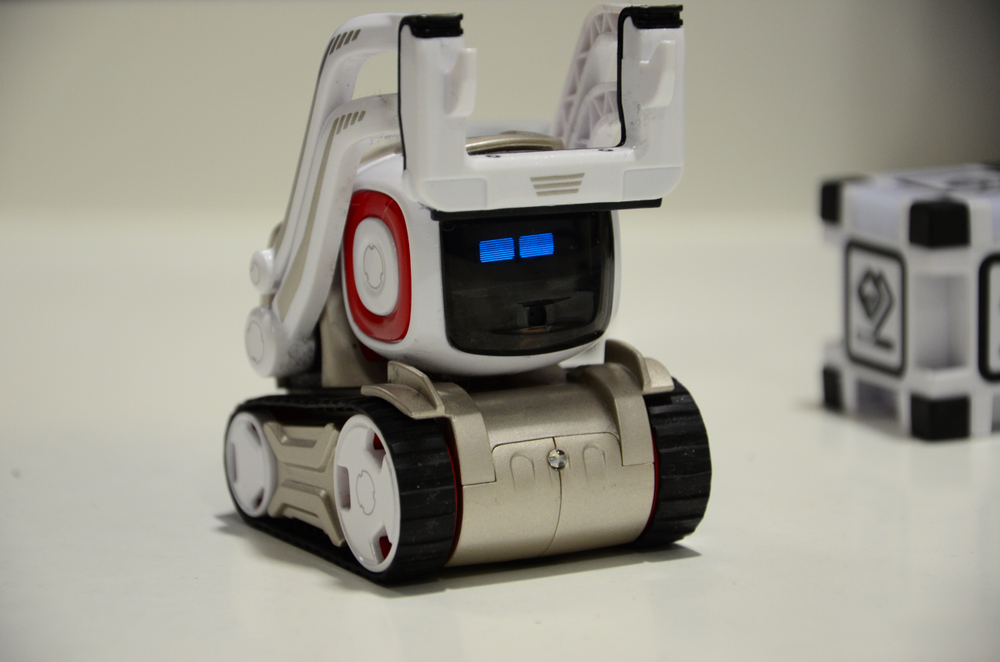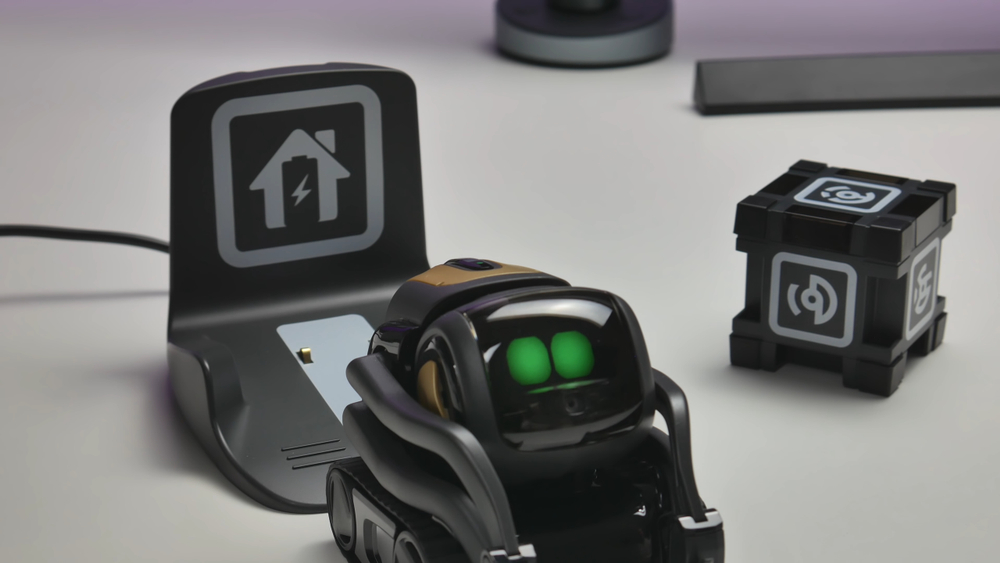Cozmo and Vector refined what it means to have a companion robot, blending the lines between entertainment, education, and personal connection. In 2018 they introduced one of the most compact pair of companion robots: Cozmo and Vector. Companion robots are supposed to be helpful, capable of learning and responding to the environment, have the ability to engage in gameplay and express their “personality.”
Both Cozmo and Vector are built on a similar physical ‘dozer physical platform and were conceived from the start as companion robots. They both take advantage of the tendency for people to anthropomorphize inanimate objects and to form attachments. Despite this emphasis on building an emotional attachment both robots have some serious capabilities. They raise the bar for how much capability can fit into how little space. Forward laser ranging, high resolution camera, edge detection to avoid driving off a cliff, four microphone array for directional sound location and over a million lines of code.
Cozmo
Cozmo is dedicated to developing coding as learning and game play at the same time. There is a beginner mode, which uses programming blocks, a sandbox mode which eventually advances to a Python SDK. All modes work through a smartphone app making Cosmo a sort of RC robot. It’s not clear, but the web site for Anki only seems to feature Cozmo 2.0. So, this seems to be the only version they are selling (though Cozmo is listed as out of stock, implying they are not currently in production).

Vector
Vector is designed to be more or less ready “out of the box”. It needs to be initialized using a smartphone app, but after that it works on voice control. It is essentially a compact mobile version of various home-assist robots, including a cloud-based internet connection. It interfaces directly with Alexa for example. One could imagine that at some point in the future, with all of the in-home smart devices being developed that a companion robot could act as a caretaker, essentially roaming around managing the various IoT devices in the home while the homeowner is away. To create personality, Vector’s conversations are punctuated with an array of squeaks, hums, and assorted mechanical noises as it rolls around your desktop. This is very reminiscent of the well-known R2D2 droid of the Star Wars franchise.

The Rise and Fall of Anki
This is a very competitive space that a lot of big companies are looking to dominate. Cozmo and Vector were first invented by Anki in 2018, with a plan to introduce a Cozmo 2.0, but their next stage funding dried up. The company was bought by Digital Dream Labs. Although the Anki branding is still prevalent in the DDL web site videos. In November of 2022 DDL announced they were working on Cozmo 2.0.
If you visit the DDL web site, its focus is on Vector. There are still references to “Anki Vector” in the video demos. Looking for the Cosmo 2.0, shows that it is currently out of stock, although there are plenty of videos showing Cosmo (or possibly Cosmo 2.0) at work.
As early as April 2022 through August 2023 various individuals on Redditt reported that their interactions with DDL through their Vector robot had ceased to work. In essence the DDL servers were off-line or even gone. One user went so far as to get the physical address of DDL and, using Google street-view determined that the DDL offices were empty. It makes one wonder why the web site and videos for Vector and Cozmo are even active. The last communication from DDL to the Vector user group was an email that one user put on a you tube video on August 20th, 2023, promising a move from AWS servers to Azure cloud services and an upgrade by adding Chat GPT as a feature of the upgraded, next generation version for their Vector robot.
The last public comment directly from DDL was on their Facebook Page wishing everyone a Happy Valentine’s Day (2024) and assuring them that DDL continues to work on the server problem that has affected the Vector robots. It has been at least two years that owners of the Vector Robot have had a working companion. Not surprisingly, the one area of growth is in the on-line Facebook group: “Digital Dream Labs Sucks”. It now has 132K followers.
